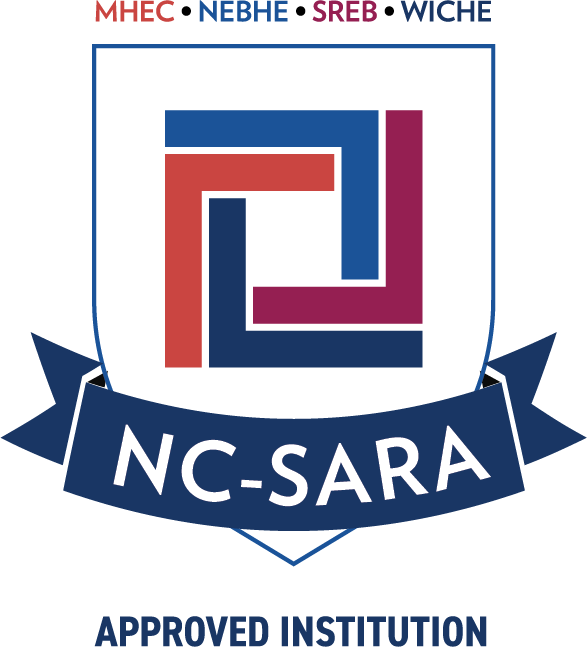Early College and Dual Enrollment
- Temp Last Modified: 2025-01-13
Did you know that you may be able to earn college credit while still in high school?
The Early College and Dual Enrollment program allows high school students to take classes online, at one of our campuses or even at their own high school! Credits earned may count towards both your high school diploma and college degree, giving you a head start on your higher education journey.
Video Transcript
| Time Code | Visuals | Audio Transcript |
|---|---|---|
| 00:00-00:06 | CT State logo transitions to title "Dual Enrollment | Upbeat music |
| 00:07-00:20 | Tunxis campus drone footage transitions to Alex Boylan walking on campus with CT State Provost, Karen Hynick. | [Alex] When it comes to helping students get a jump on their education, Provost Karen Hynick knows the best way to meet students where they’re at and offer opportunities to start even before they graduate high school. |
| 00:21-00:35 | Boylan speaks directly to the camera, video transitions back to campus and then down to Alex and Karen walking. | [Alex] While I was on campus this week, I caught up with Provost Hynick to discuss her plans to expand early access across the state of Connecticut. Check it out. |
| 00:35-02:10 | Shots of Alex and Karen walking through Tunxis campus transition back and forth with videos of CT State students on campus, in classes, studying etc. |
[Alex] You know what I find fascinating is how many high school students are on these campuses. [Karen] I know, it’s amazing. We have about 10% of our student body are dually enrolled. That means there are high school students taking college classes, usually on the college campus, getting earlier exposure to college experiences and saving time and saving money. [Alex] Wow, how does a high school student qualify for the program? [Karen] We’re very fortunate at CT State, eligibility starts as early as ninth grade. [Alex] Wow. [Karen] As long as the student meets the same prerequisite as any other student taking the class, they can take it. [Alex] I wish I took college classes when I was in high school. [Karen] Me too. [Alex] So is it intimidating for the high school students? [Karen] I mean, I think in some ways it may be, but really think about the demographic that’s first generation, right? [Alex] Yeah. [Karen] Students who didn’t grow up knowing how to navigate higher ed physically getting the chance to be on our campus, actually experiencing college classes, experiencing our services. It’s a game changer. They know they belong after coming through dual enrollment and that’s what the data says. [Alex] It is a powerful program. [Karen] It really is, and I could talk with you all day long about dual enrollment. [Alex] Are you kicking me out? [Karen] I’m kicking you out because I got a meeting I gotta go to, but I want you to hear from a student because they tell the story best. [Alex] Okay. [Karen] They’re inside our beautiful library. [Alex] Okay. [Karen] Her name is Ashmeet, and you can hear what her experience has been like. [Alex] Thank you so much. [Karen] Thank you so much for being here. [Alex] All right. We’ll see you soon. [Karen] See you soon. [Alex] Thank you. [Karen] Thank you. |
| 02:11-03:31 | Alex walks into Tunxis library and introduces himself to student, Ashmeet Kaur and then sits down next to her. She closes her laptop and they talk. The interview is interspersed with video footage of CT State student life and classrooms. |
[Alex] Ashmeet? [Ashmeet] Hi, Alex. [Alex] Oh my gosh, it’s so nice to meet you. [Ashmeet] So nice to meet you too. [Alex] Oh, well, I’m so excited about this. What is it like being a high school student on college campus here? [Ashmeet] Alex, it’s awesome. Being a high school student and being able to use all the resources that college provides such as this amazing library that we’re in, it’s really nice being able to talk to college professors and getting the whole college experience while I’m still in high school. [Alex] It’s so incredible. So you’re in dual enrollment, where are you hoping that this program takes you in the future personally? [Ashmeet] So in the future, first of all, I wanna say I’m really appreciative of CT State for providing sort of the foundation for my career. When I graduate, I’ll be walking out of here with nine credits, which is really beneficial because I’m applying to universities like University of Connecticut, Boston University, and Ivy League such as Princeton University and University of Pennsylvania. I feel like being here doing the dual enrollment program, it will give me a leg up in the college admissions process. [Alex] Wow, you are so impressive. There are like millions of high school students that I bet are jealous you right now and if you’re one of those institutions, you have to accept Ashmeet. You are so impressive. [Ashmeet] Thank you. [Alex] Thank you so much for meeting up in this. [Ashmeet] Thank you. [Alex] It is really cool what you’re doing. [Ashmeet] Thank you. |
| 03:32-END | Alex speaks directly to the camera with Tunxis campus behind him. | [Alex] Gaining college credits even before graduating high school is what many students today are seeking to accomplish. You can really get a sense of the impact both on students’ lives and in the local region by incorporating these opportunities early in the educational journey. Thank you for sharing that with us, Dr. Hynick, and you too, Ashmeet, thanks again. |
For more information, please contact CTState-DualConcurrent@ctstate.edu.
Upcoming Events and Deadlines
Students and Families
FIND INFORMATION FOR:
High School Students and Families
INFORMATION FOR
High School Students and Families
What are the benefits of being a dual-enrolled student through CT State?
-
Early exposure to college-level courses and college expectations
-
Flexibility to take classes on campus, online and/or at your high school
-
Access to over 1,000 high-interest general education and technical courses that are geared toward career and transfer pathways
-
Courses taught by highly qualified faculty experts
-
Classes may count for both high school credit and towards a college degree
-
Substantial time and cost-saving potential* (*Leverage dual and concurrent enrollment courses and CT State’s tuition-free funding to matriculate into one of CT State’s 300 degrees/programs after graduating high school.
-
Free access to CT State libraries, tutoring centers, disability and accessibility services, student clubs, college events, advising, mental health and wellness counseling, and financial aid offices.
Getting Started
If you're a high school student interested in one of our programs, inquire with your school counselor on the best route to obtain college credit. You may also contact our recruiting staff for more information CTState-AdmissionsRecruitment@ct.edu.
Determine which program is right for you based on the partnerships between CT State and your high school setting. Start a conversation with a School Counselor to determine opportunities for dual-credit. CT State’s Dual Enrollment programs are taught by CT State faculty, typically on campus. Concurrent Enrollment programs are taught by credentialed high school instructors who are approved to teach a CT State course(s). Both opportunities can lead to earning college credit that is recorded on your CT State transcript. Both Dual and Concurrent Enrollment require high school students to complete a digital application. This specialized link is provided by your high school setting or a CT State representative. High School students should not use the General Application available on the college website. (Note: Students will utilize DualEnroll software starting in Fall 2026.)
If you are eligible and admitted to take courses using the High School Partnership waiver, contact a local Guided Pathway Advisor about selecting 1-2 courses before the start of the semester. All students must meet the prerequisites listed in the academic catalog, which may include Placement requirements. If you are admitted to take a Concurrent course at your high school, confirm with your teacher that you are correctly listed on the roster before the Add/Drop deadline. (Note: Students will register using DualEnroll software starting in Fall 2026.)

Participate in a required orientation- High school students are invited to participate in orientation opportunities on campus, mostly during the summer months (admitted students are sent invites for high school sessions); virtually in January (via webinar registration); and asynchronously throughout the year via Connecticut State Community College Dual & Concurrent Enrollment.

Dual and/or Concurrent high school students have access to CT State campus resources while enrolled in college courses. This includes but is not limited to the Library Services, Career Services and Counseling/Wellness Services.
Please reach out directly to your campus Office of Disability and Accessibility Services for questions related to accommodations and/or initiate support by completing the self-disclosure intake form ODAS.
Once enrolled in a course, students' final grades are permanently recorded on their CT State transcript. If withdrawing from a course is deemed necessary after discussions with family, educators, or an Advisor/School Counselor, withdrawal paperwork must be completed by the deadline to receive a W on the transcript instead of a letter grade. One Stop can assist with forms and guidance.
CT State offers Dual Enrollment opportunities for high school students to earn college credit and be exposed to college-level learning.
Below are guidelines from CT State's Dual Enrollment Policy (July 1, 2025). Please note that some programs may have additional eligibility criteria.
Dual Enrollment: CT State's (and CSCU's) Dual Enrollment Policies were approved on July 1st, 2025.
Connecticut high school students, home schooled students, and students enrolled in other types of secondary education level opportunities may access dual enrollment opportunities as early as 9th grade.*
- They must have a minimum of a 2.0 High School GPA or equivalent (C average) to be eligible to apply.*
- If they do not have a minimum of a 2.0 High School GPA, a school counselor, school administrator, teacher or academic tutor may submit a letter verifying rationale as to how the student would benefit from admissions to the program.
- They must meet the same prerequisite course requirements as any other student taking the college course. This may include placement testing or other multiple measures (see ACME and placement related policies).
- They must complete their application and attend a mandatory dual enrollment orientation facilitated by college personnel on the college campus, at their high school, or online prior to the start of the course enrolled in.
- It is also recommended that a parent or guardian attend the mandatory orientation with the student.
- It is recommended that the first course a dual enrolled student enrolls in is CCS 1001 College and Career Success.
*Please see eligibility criteria for the long-standing High School Partnership program
Dual Enrollment
(CT State Faculty-led/Campus-based)
-
A former Board of Trustee policy in which juniors and seniors with a 3.0/B average in the top 20th percentile of their class can take up to two courses tuition-free taught by CT State faculty in the fall and spring semester. (The student is a singleton taking a college course with CT State's traditional population on any of our campuses, online or through a hybrid approach. To be considered eligible, you must meet the same requirements as any other college student. These courses are tuition and fee-free but students are responsible for covering the cost of books.) Students apply using the dual enrollment student application.
-
This is an opportunity for students to pay tuition for courses taught by CT State faculty where they are singletons. High school students wishing to self-pay and who meet the enrollment criteria for the course may enroll in CT State courses beyond those available in the programs listed. Students taking this route are traditionally non-degree-seeking.
Concurrent Enrollment
(High School Instructor-led/High School-based)
-
A qualified high school teacher (recommended by the school and CT State) teaches a college course at their high school (no cost). Students apply using the dual enrollment student application and meet the same eligibility requirements as any other college student taking the same courses.
-
Concurrent enrollment courses that connect to a technical pathway and meet federal Perkins V funding guidelines.
CT State Model Programs that Leverage Dual Enrollment
-
Middle college high schools are a national model, which co-locates a high school on a college campus and leverages a combination of high school partnership courses and concurrent enrollment courses to customize pathways for you to earn college credit while completing your high school diploma. Courses are offered at no cost to you or your family. You will benefit from being physically on the college campus with access to all of the college amenities and services once you are dual-enrolled. These partnerships are currently offered at Manchester (Great Path Academy), Three Rivers (Three Rivers Middle College Magnet High School), and Quinebaug Valley (Quinebaug Middle College High School).
-
P-TECH is a national model where you may take a combination of high school partnership courses and concurrent enrollment courses, mapped to earning up to an industry-recognized associate degree in information technology. You may take college-credit-bearing classes starting in the 9th grade. This option currently exists through a partnership between Norwalk Public School and the Norwalk campus.
-
Gateway to College is a national model, where students complete their high school diploma on the CT State Gateway campus through a partnership between the local school district and the campus, and is tuition and fee-free to participating students. Through this program, you will take college courses mapped to complete your high school graduation requirements while earning college credit toward an associate degree. You must meet the same eligibility requirements as any other college student taking the same courses.
-
CT State offers a number of ways you may leverage competencies earned through additional experience or coursework other than through taking college courses. These include recognition of exam scores from Advanced Placement, CLEP, International Baccalaureate and Dantes (DSST). It also includes recognition for industry-recognized credentials through ACE.
INFORMATION FOR
School District Partners
Campus Contacts
-
Find your campus from the list above for contact information.
-
Asnuntuck
College Career Pathways (CCP)
Julie Cotnoir, julie.cotnoir@ctstate.eduHigh School Partnership
Roland Atkinson, roland.atkinson@ctstate.eduAdvanced Manufacturing Technology Pathway Program
Mary Bidwell, mary.bidwell@ctstate.edu -
Capital
College Career Pathways (CCP)
Karen Binkhorst, karen.binkhorst@ctstate.eduHigh School Partnership
Valerie Zayas, valerie.zayas@ctstate.edu -
Gateway
High School Partnership
Bernie Shea bernie.shea@ctstate.eduCollege Career Pathways (CCP) and Dual Enrollment
Jaime French, jaime.french@ctstate.eduGateway to College
Adrien Esdaile, adrien.esdaile@ctstate.edu -
Housatonic
Manufacturing Program - College Career Pathways
Adam Scobie, adam.scobie@ctstate.eduDual Enrollment and Concurrent Enrollment/College Career Pathways
Debbie Kuchmas, debbie.kuchmas@ctstate.eduHigh School Partnership (HSP) program
Earl Graham, earl.graham@ctstate.edu -
Manchester
All Programs
Hiram Gandia-Torres, hiram.gandiatorres@ctstate.edu -
Middlesex
College Career Pathways (CCP)
Michele Rousseau, michele.rousseau@ctstate.eduDual Enrollment
Israel Kabemba, israel.kabemba@ctstate.eduAll Others
Monet Carter, monet.carter@ctstate.edu -
Naugatuck Valley
Waterbury Campus-All Programs
Blayre Millo, blayre.millo@ctstate.edu
Dean Paula Dowd, paula.dowd@ctstate.eduDanbury Campus-All Programs
Antonio Santiago, antonio.santiago@ctstate.eduDanbury Dual Enrollment
Scott Farrell, scott.farrell@ctstate.edu -
Northwestern
Dean Jay Whitaker jay.whitaker@ctstate.edu
Isabella Pinto, isabella.pinto@ctstate.edu -
Norwalk
Dual Enrollment
Mathew Baker, mathew.baker@ctstate.eduHigh School Partnership
Pracilya Titus, pracilya.titus@ctstate.edu -
Quinebaug Valley
College Career Pathways (CCP)
Elkin Espitia-Loaiza, elkin.espitialoaiza@ctstate.eduAll Others
Amanda Giles, amanda.giles@ctstate.edu -
Three Rivers
CCP
Traci Hastings, traci.hastings@ctstate.eduHS Partnership
Kem Barfield, kem.barfield@ctstate.edu
Mackenzie Parise, mackenzie.parise@ctstate.edu -
Tunxis
CCP/Dual Enrollment
Laura D'Angelo-Gohn, laura.dangelogohn@ctstate.eduCCP/Dual Enrollment
Jessica York McKinney, jessica.york@ctstate.eduHS Partnership
Loren Pittman, loren.pittman@ctstate.edu
Priscy Ramos, priscy.ramos@ctstate.edu
Concurrent Course Planning
Teacher Credentials and Curriculum Review
CT State allows qualified high school teachers to teach our courses but retains the right to determine if their credentials are equivalent to the credentials of our faculty.
- The College follows NECHE and NACEP standards and guidance related to concurrent enrollment.
- Minimum faculty credentialling is a master’s degree in field or a master’s in education and at least 18 graduate credits in field for subject matters that have a terminal degree at the doctorate level. For other fields, where the terminal degree is less than a doctorate, the minimum qualifications will be the terminal degree in field. Examples of these fields include but are not limited to; Culinary Arts where a terminal degree is an associate degree; Manufacturing where a terminal degree is a certificate or associate degree.
- The College may consider an alternative credentialing option that demonstrates a high school faculty member’s competency in field on a case-by-case basis.
- Courses that are part of an academic program that is externally accredited may require additional faculty requirements including but not limited to, recency or employment in field that will require a case-by-case evaluation.
- The College retains the ability to observe and evaluate the outcomes of the course taught by the concurrent enrollment instructor to determine opportunities for continuous improvement, additional professional development needed, or whether to continue to grant the ability to teach our curriculum on a semester basis.
Concurrent Enrollment Teacher Application
- Collaborate - Initiate planning to teach a CT State course(s) by reaching out to the Coordinator identified for the local campus. If the local campus does not host the academic program you are interested in, the Coordinator will connect you with an appropriate campus. The Campus Coordinator will work with program leadership to review the high school's adoption and alignment of CT State curriculum and identify credentialed educators. This process includes the Coordinator and/or Faculty Liaison sharing curriculum resources and feedback, such as the course outline and syllabus template, to ensure optimal curriculum adoption and course sequencing.
- Apply - High School instructors email a completed PDF application with supporting documents to the Coordinator. (Please note that the application process will move to the DualEnroll platform in 2026.)
- Review - The School Dean reviews the application packet final review and responds with approval and/or feedback.
- Notify - The Coordinator and/or School Dean sends a notification email that includes campus program leadership.
- Onboard - The Coordinator and CT State’s Scheduling Team work with the High School Instructor to complete an information form. (CT State uses the personal information requested to prevent duplicate users within CT State’s system.) The Instructor receives their MyCTState ID and technology access information after their profile is created.
- Access Resources - High School Instructors log-in to MyCTState to check email and identify where grades are submitted. The Coordinator and/or Faculty Liaison will share additional helpful information.
- Participate in Professional Learning-
- Drop-in to virtual office hours in January and May/June for support with submitting grades.
- Register for the annual systemwide Institute that rotates campuses each June. (It is essential to attend this Institute in your first year teaching with CT State.)
- Explore additional opportunities offered on campuses that meet NACEP’s annual discipline-specific professional learning standard.
- Evaluate - Complete CT State’s annual Dual and Concurrent Program survey by June 30th.
2025-26 Concurrent/CCP Timeline
Fall 2025 Semester and Year Long Courses
-
September 25
- Student applications due for fall and full/all year courses.
- High school instructors submit CT State course syllabus/syllabi through November 25.
-
October 10
- Late admissions extension ends for fall and full/all year.
-
November 5
- Registration (Add/Drop) period closes.
- Final course rosters submitted for fall courses.
-
November 15
- Applications for new instructors and CT State courses to begin in the spring semester are due.
-
November 6-December 10
- Withdrawal period/deadline for fall courses.
-
January 30
- Grades submitted by high school instructors.
Spring 2026 Semester and Year Long Courses
-
February 25
- Student applications due for spring courses.
- High school instructors submit CT State course syllabus/syllabi through April 25.
-
March 10
- Late admissions extension ends for spring courses.
-
April 5
- Registration (Add/Drop) period closes.
- Final course rosters submitted full/all year and spring courses.
-
April 15
- Applications for new instructors and CT State courses to begin in the fall semester are due.
-
April 6-May 10
- Withdrawal period/deadline for spring and full/all year courses.
-
June 30
- Grades submitted by high school instructors.
- Hits: 19526


